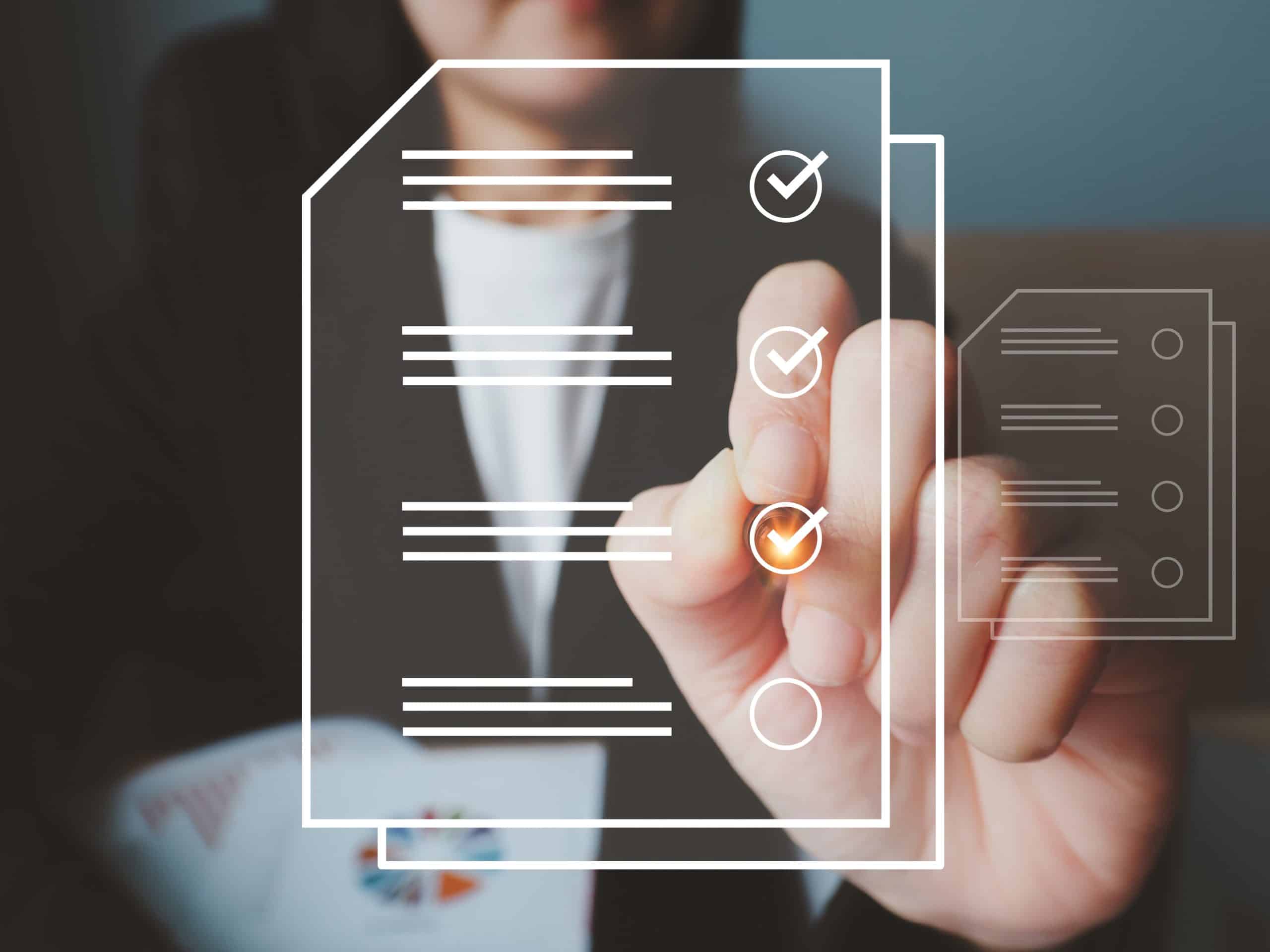The Uniform CPA Examination, otherwise known as the CPA Exam, is the licensing exam for professionals seeking to become Certified Public Accountants. It is developed and graded by the American Institute of Certified Public Accountants (AICPA) and administered in conjunction with the National Association of State Boards of Accountancy (NASBA).
What comprises the CPA Exam?
The CPA Exam is a four-part exam that tests the skills of entry-level accountants’ who want to practice public accounting. The exam contains three separate core exams and three separate discipline exams (students only need to pass one of the disciplines), referred to as sections. Testing time totals 16 hours, equal to four hours per section, and assessment occurs at a Prometric test center.
CPA Exam format
The exam includes three core sections: Auditing and Attestation (AUD), Financial Accounting and Reporting (FAR) and Taxation and Regulation (REG). Students must also pass one of the following discipline sections: Business Analysis and Reporting (BAR), Information Systems and Control (ISC), and Tax Compliance and Planning (TCP). The following question types appear on the CPA exam:
Multiple-choice questions (MCQs)
- One-sentence to paragraph-length questions
- Four potential answers
- Candidates select the best response
Task-based simulations (TBS)
- Practical questions
- Require typed-in responses
- May include research questions, journal entries, form completions or account reconciliations
Each of the exam sections is subdivided into five testlets containing various question types. See a breakdown of the questions within each test section here.
CPA Exam
Check out our CPA exam resources to help you strategize for the exam.
When should I take the CPA Exam?
Surgent recommends that candidates take the CPA Exam as close to review course completion as possible to optimize the study methods and accountancy skills they learned during their studies. Surgent’s CPA Exam prep course utilizes proprietary adaptive learning Predictive AI technology and real-time ReadySCORE™ results to help candidates confidently prepare for the exam.
How do I apply for the CPA Exam?
See the Jurisdiction Requirements under NASBA’s “CPA Exam Resources” to determine what you need to take the exam in your state.

Get your NTS
Once you apply and have been approved, you will receive your Notice to Schedule (NTS). You will need this to book your exam appointment.
Schedule your exam
Visit the Prometric Testing Center website at prometric.com/cpa to schedule your exam using your section ID.
Choose your location
You can choose the most convenient site by using Prometric’s location tool.
What to expect on exam day
If this is your first time sitting for the CPA exam, you might be nervous about what you can expect. Here is what you need to know about exam day at the Prometric Testing Center:
Arrival
- Plan to arrive at least 15 minutes before exam time.
- If you arrive after exam time, you may be asked to leave, and you will forfeit your exam fees.
Your ID
- Bring a valid photo ID with you to the testing center.
- You may use your passport or your driver’s license.
Notice to Schedule (NTS)
- Make sure to bring your NTS!
- You will not be permitted to sit for the exam without your NTS.
No cellphones
- Leave your cell at home or in your car. Prometric has a zero-tolerance policy regarding phone usage.
- Those caught with phones may be asked to leave and reported to NASBA.
Security
Be prepared for security checks, which may include:
- Fingerprinting
- Identity confirmation
- Scanning with a metal detector
Materials
The testing center will provide each candidate with the following to serve as scrap paper:
- Dry-erase marker
- Whiteboard
As you begin the CPA Exam
The welcome screen
You will be given five minutes to verify your name, photo and exam section.
Policy statement
You will have five minutes to agree to the policy statement and confidentiality screens.
Exam instructions
Next, you will have five minutes to read the exam instructions. rnrnWe recommend that candidates become familiar with these instructions before testing by visiting the u003ca href=u0022https://www.aicpa.org/resources/article/follow-this-general-guide-to-earn-your-cpau0022u003eAICPA Websiteu003c/au003e.
Note the time
Each exam section is four hours long. Monitor the clock at the top of your screen to ensure you allocate enough time to your multiple-choice questions and simulations.
Average CPA exam cost breakdown
CPA exam fees (on average)
Application fee – $130.00
Registration fee – $300.00
Examination fee – $833.60
Application fee
First-time CPA candidates must pay a CPA exam application fee to the state board of accountancy as part of the application process. Application fees range from $10 to $200, depending on the state in which a candidate applies to take the exam. Most states charge an application fee of between $100 and $200, with an average fee of around $130.
Registration fee
This fee is paid when you apply to take a section of the CPA Exam. Registration fees vary by state, just as the application fee does. Some states offer different pricing depending on the number of CPA Exam sections taken in one sitting. For example, Massachusetts uses a tiered pricing system:
- One section: $117.00
- Two sections: $137.00
- Three sections: $157.00
- Four sections: $177.00
Due to different pricing models, the registration fee may vary significantly by state and by the candidate. Most candidates may expect to spend about $300 on registration fees.
Along with the registration fee, there is a Notice To Schedule (NTS) that remains valid for a limited time after you register (often six months). When paying the registration fee, be sure you know how many sections of the exam you would like to sit for, along with the amount of time it will take you to study for each section. The National Association of State Boards of Accountancy (NASBA) offers NTS extensions or partial refunds on a limited basis. If you reapply to take a section of the CPA Exam, expect to repay the registration fee.
Examination fee
The CPA examination fee must be paid each time a candidate applies for any of the four exam sections: Auditing and Attestation (AUD), Business Environment and Concepts (BEC), Financial Accounting and Reporting (FAR) and Regulation (REG). If you do not pass an exam section on the first try, you must repay the examination fee to sit for that section again.
NASBA sets examination fees at $208.40 per exam section; however, accounting state boards are not required to charge this fee. Check with your state board to budget appropriately.
After passing the CPA exam
Once you successfully pass the CPA exam, there are still a few more steps – and fees – before CPA licensure.
CPA licensing fees (on average)
Professional Ethics Exam fee – $169.00
Licensing fee – $175.00
Continuing Professional Education (CPE) credits – $1,000.00 (yearly)
CPA Exam Ethics fee
Most states also require you to take a specific exam to demonstrate your understanding of ethics as a certified public accountant. While some state boards administer their own ethics exam, many use the Professional Ethics Exam administered by the AICPA. Check with your accounting state board to learn whether you will be required to take the Professional Ethics Exam. If so, note that the AICPA offers a discount for members, $149 compared to the $189 cost for non-members.
CPA licensing fee
Once you have successfully passed all four sections of the CPA Exam (and the Professional Ethics Exam, where applicable), you must pay the CPA licensing fees to your state board. These costs vary by state and range from $50 to $300.

CPE costs
After becoming a fully licensed CPA, you will need to complete a certain number of continuing education hours per year to maintain your license. Most states require a minimum of 40 continuing education credit hours, which can cost anywhere from under $10 to more than $100 per hour. Surgent offers hundreds of CPE courses in various formats and continuing professional education packages that provide unlimited yearly access for one low price. Learn more about Surgent CPE.
Additional costs and fees
CPA Exam review course
It is highly recommended that you study with a CPA Exam review course before sitting for the exam. Surgent CPA Review offers courses at several price points to help students move through the CPA Exam review process quickly and effectively with proprietary AI technology.
In some cases, additional fees may apply – keep reading to learn more.
Reapplication fee
Nearly half of all CPA candidates do not pass on their first attempt; therefore, candidates must reapply and repay to retake a CPA Exam section.
Surgent has been a leader in accounting and finance education for 35 years, and we are here to help you pass your exam review course the first time. In fact, 92% of Surgent students pass the CPA exam — that’s well over the National passing rate average of just over 50%.
Save your money by passing the CPA Exam on your first try. We are confident you’ll pass your accounting and finance exam the first time; we offer a 100% Pass Guarantee.
International candidate credentialing costs
If you plan to sit for the CPA exam in an international location, such as Guam or Europe, there are additional registration fees of $365.55 per exam section. International candidates must also have their transcripts evaluated by an agency to ensure they comply with the educational requirements for CPA certification. The credential evaluation services cost anywhere from $100 to $300, depending on the agency.
Worried about CPA exam costs?
At Surgent, we understand that the costs and fees for becoming a CPA can start adding up quickly. We offer candidates a free trial of our CPA review course. See how adaptive technology will help prepare you to pass the CPA Exam confidently.
Surgent wants to make sure our courses are affordable for every candidate. If you find that Surgent is suitable for you, you may choose to split your CPA exam review course purchase into monthly payments. Simply select “Affirm” under Payment Details at Checkout to get started.


